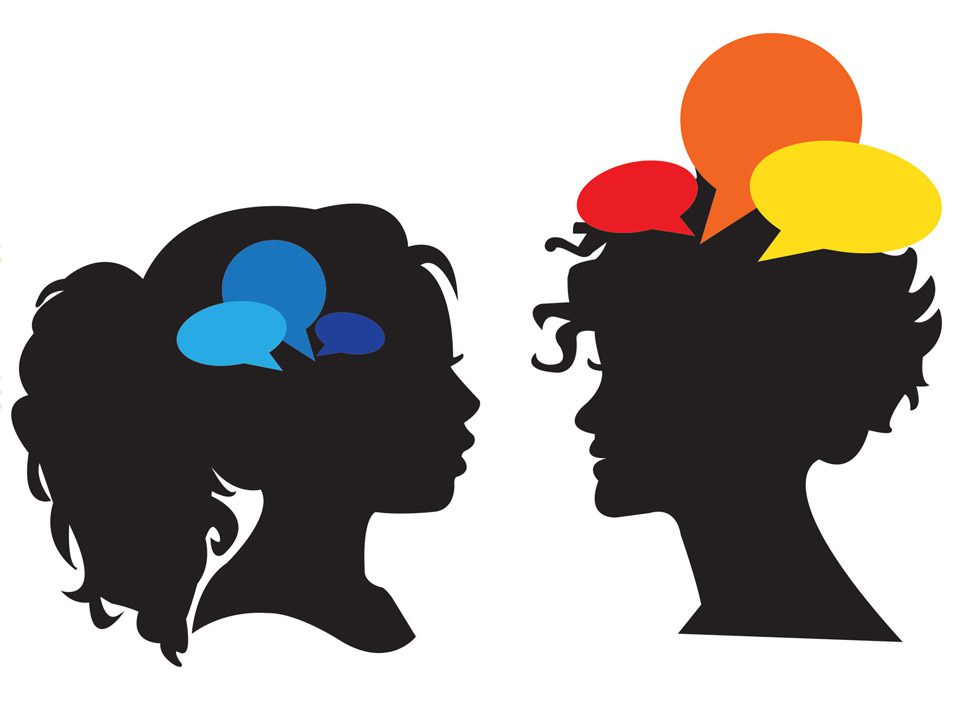Ever wondered why your partner doesn’t behave in the same way you do?
- Does it wind you up that they insist on chit-chatting all day and want to offload their thoughts while you just want some peace and quiet to reflect on your own thoughts and feelings?
- Does it drive you mad that your partner prefers to stay at home while you’re keen to join your friends for meals out?
- Are you fuming that your partner has just agreed to a plan, or bought something new, without thinking about it first?
- Do you find it hard to keep up with all their many friends, while you prefer to have a few close friends that you’ve known for ages?

The way in which our energy is directed will impact on our tendencies and preferences, so an introvert who works around people throughout the day will need to come home for some peace and quiet, so they might retreat to a room in the house where they can be by themselves for a while, or take the dog for a walk. This privacy and solitude will help recharge their batteries. Whereas an extravert working in a similar environment is likely to come home and want to chat about their day with their partner.
At the weekend, after a long week of work an introvert may be looking forward to a quiet weekend doing solitary activities such as walking, reading, journalling etc., while an extravert is planning social activities to catch up with friends and family.
As you can imagine, as a couple, you can see where frictions might build if you’re different personality types – the extravert may not enjoy a quiet weekend at home, whilst the introvert may not want to go out and mingle. I’m not insinuating that an introvert and extravert aren’t a good match – not at all! But they do have to find ways to compromise, or do some things separately, in order to get their needs met.
Another example is where an extravert is more likely to process their thoughts and feelings by talking them through, so will enjoy sitting and chatting about all sorts of things that float through their minds. While an introvert will find this an information overload, they’d rather have some space to pause and ruminate, and then express their thoughts and feelings once they’ve had time to formulate exactly and succinctly what they want to say. In fact, if you throw other chatty extraverts into the group, the introvert can find themselves swimming through a pool of thoughts and ideas and having little opportunity to process and respond to it. (You may notice this in work meetings, where some people have lots to say (not all of which will be necessarily helpful or thought through!, while others will sit quietly, but what they do say is deeply thought through and makes an impact. You can assume that the quieter ones are not taking an interest, or are shy and nervous, but they’re actually often deeper in thought and preparing what they have to say in a considered manner).
Extraverts are likely to be more open about their emotions, and have a stronger temptation to express themselves, while an introvert can be more private, and keep their feelings to themselves. Again, you can imagine where there may be difficulties in a relationship because one wants to vent, while the other doesn’t.
Another area of difference is around impulsivity. An Extravert is more likely to do things and take action quite quickly, perhaps treating themselves to a new item, or making a plan for the evening without much deliberation. Whereas an introvert is more likely to think carefully about their need for an item, and double check the budget or bank statement before making a purchase, or will want to do some research and keep a check on their energy levels around undertaking an activity before committing to it.
Another example is that an extravert is likely to have a broad number of friends, hobbies and interests, while an introvert is likely to have a smaller circle of close friends and fewer, but a deeper interest in, a select few hobbies and interests.
As you’re reading this, I wonder if there’s some recognition of how you or your partner behave differently? Is it shedding some light on some reasons for conflict in the relationship? If so, I’d recommend doing some further research into personality types (Extraversion and Introversion are only one of several ways in which our personalities differ, so I’d recommend taking a look at myersbriggs.org for further information.
With more insight about how you both tick, you can be more informed about each other’s preferences, and that these are both normal and valid (there isn’t a right or wrong on which type we are, rather they are simply differences). You can then start to find some ways to compromise, or make adjustments so that you’re not irritating each other. Because extraverts and introverts have different needs, and they really are needs, not likes or preferences.
I hope this blog has given you a taster of how differing personalities can affect the day-to-day life of your relationship with your partner, but if you’re having difficulties that you need some more help with, then please feel free to get in touch to arrange an initial couples counselling session, as this will help give you further insight and a neutral third party perspective to support your conversations with each other.
